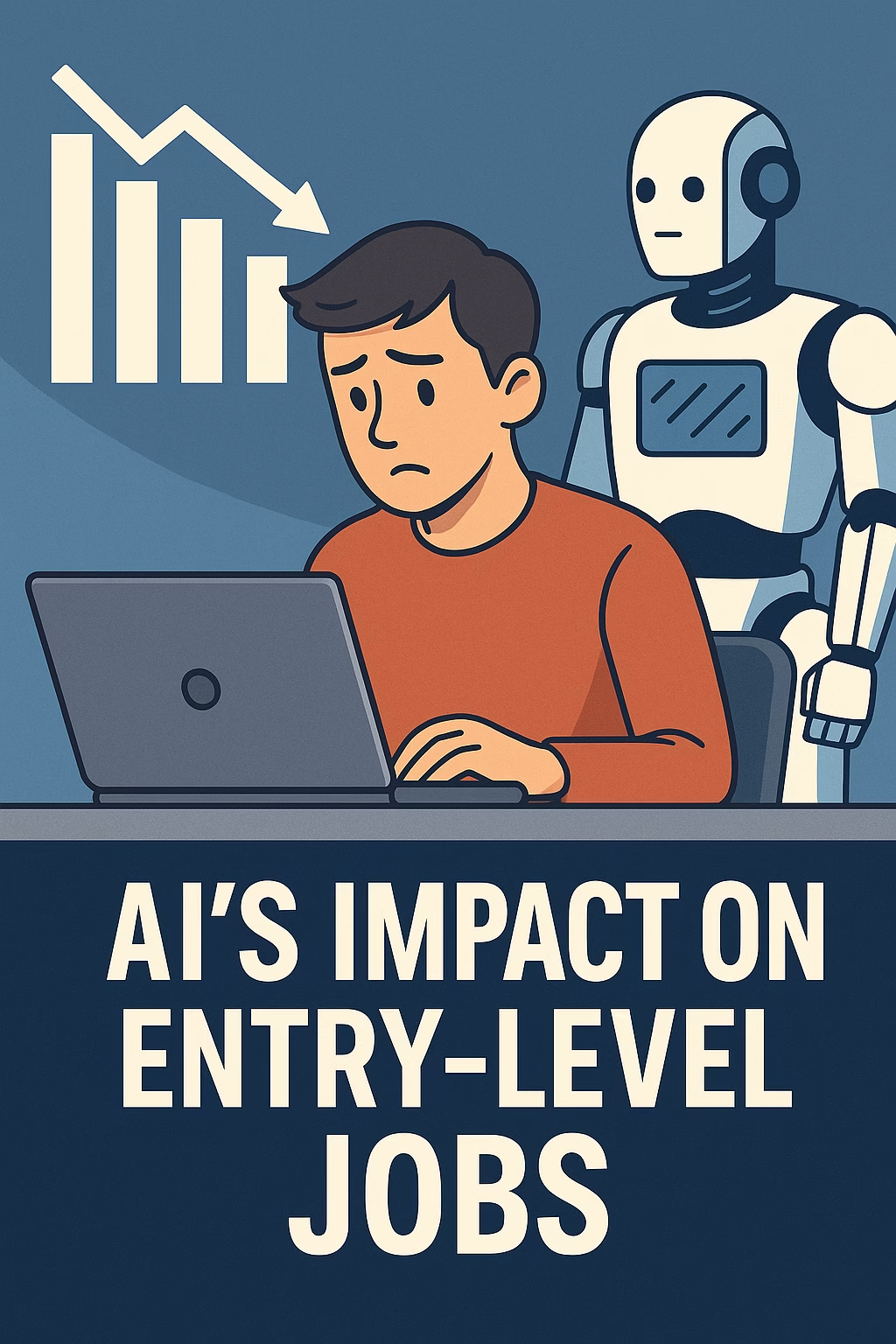AI's Impact on Entry-Level Tech Jobs: Navigating the New Employment Landscape

The rapid advancement of Artificial Intelligence is transforming the employment landscape, particularly within the tech industry. Recent reports indicate a significant decline in entry-level hiring, raising concerns about the future of fresh graduates seeking opportunities in tech. This article delves into the factors contributing to this shift, the implications for aspiring professionals, and strategies to adapt to the evolving job market.
1. Decline in Entry-Level Hiring
According to a report by venture capital firm SignalFire, entry-level hiring in major tech companies has dropped by over 50% since 2019. Previously, fresh graduates constituted about 15% of new hires; this figure has now fallen to just 7%. The primary driver behind this trend is the increasing capability of AI to perform tasks traditionally assigned to junior employees. LinkedIn’s Aneesh Raman highlighted that AI is beginning to replace foundational tasks that new employees typically handle, making it more challenging for young professionals to gain initial experience in the industry.
2. Shift in Skill Requirements
As AI automates routine tasks, there is a growing demand for professionals with advanced skills that complement AI technologies. Companies are now prioritizing candidates with expertise in AI integration, data analysis and strategic decision-making. This shift necessitates a reevaluation of educational curricula and professional training programs to equip graduates with relevant competencies.
3. Implications for Fresh Graduates
1) Increased Competition: With fewer openings, competition for available positions intensifies.
2) Experience Paradox: Employers seek candidates with experience, yet opportunities to gain such experience are diminishing.
3) Skill Gaps: Traditional education may not align with the evolving demands of the tech industry.
These factors underscore the importance of proactive skill development and adaptability for aspiring tech professionals.
4. Adapting to the Changing Landscape
To navigate the shifting employment terrain, individuals and institutions can consider the following strategies:
1) Continuous Learning: Engage in lifelong learning through online courses, workshops and certifications focusing on AI and related technologies.
2) Practical Experience: Pursue internships, freelance projects or open source contributions to build a portfolio demonstrating practical skills.
3) Networking: Connect with industry professionals through events, forums and social media to uncover opportunities and gain insights.
4) Career Services: Utilize university career centers and mentorship programs to receive guidance and support during the job search process.
5. Conclusion
The integration of AI into the tech industry is reshaping the employment landscape, particularly affecting entry level opportunities. While this presents challenges for fresh graduates, it also opens avenues for those willing to adapt and acquire new skills. By embracing continuous learning and seeking practical experiences, aspiring tech professionals can position themselves for success in an AI driven job market.
You Might Also Like


